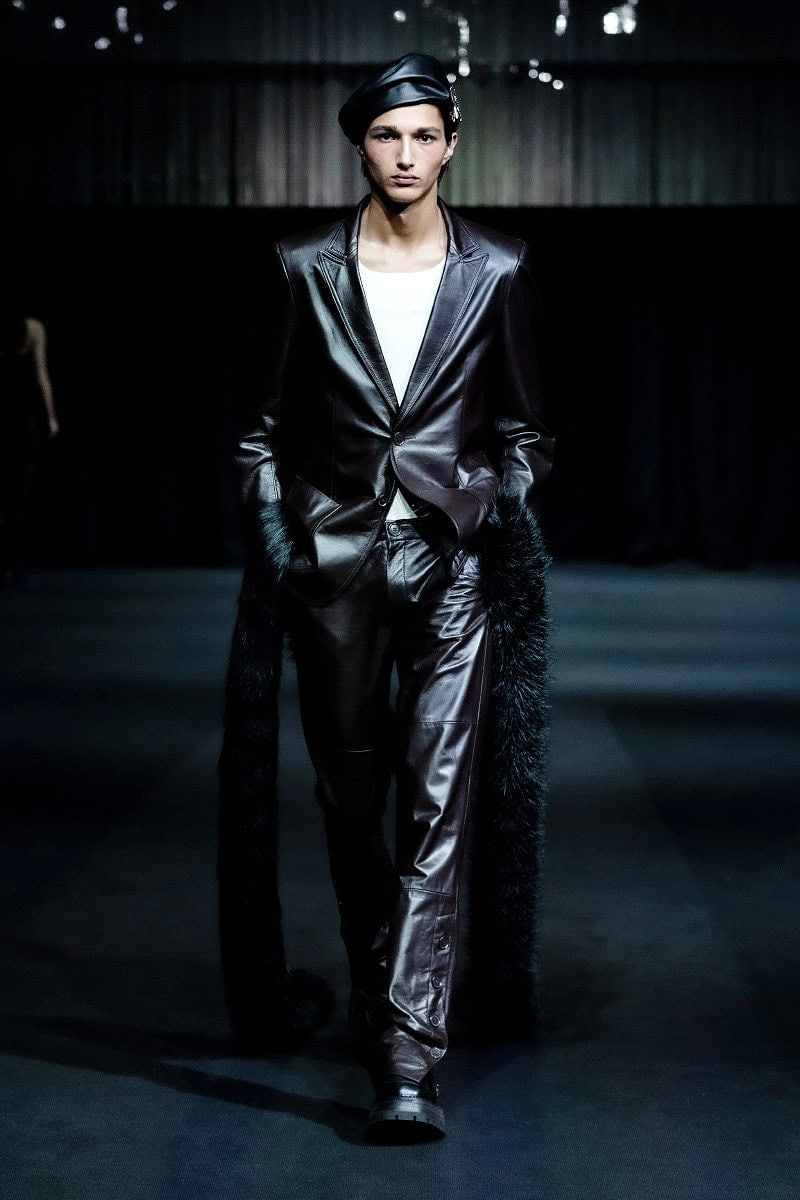
Men’s Black Clothing in London
DANIEL w. FLETCHER opened London Fashion Week during the official period of mourning. For Her Majesty Elizabeth Alexandra Mary Windsor Queen of the United Kingdom and other Commonwealth Realms. Elizabeth II reigned from 6 February 1952 until her death 8 September, 2022. She was Queen Regnant of thirty two sovereign states during her lifetime and fifteen at the time of her death.
The world watches the historic lines of mourners and celebrants of Her Majesty’s life. Paying tribute in patience, respect and community to say thank you and farewell. To the last British female monarch for the next three generations. The rituals of vigil, observance of an occasion and historic moments have provided a lens into what the traditions are of honoring duty and service of unprecedented reign of a monarch. In the middle of all of this London Fashion Week. Carries on with respectful tributes form moments of silence before presentations to black armbands worn by the models on the runway.
For Londoner and menswear designer DANIEL w. FLETCHER,black clothing has a national solemnity at this moment. However, his runway collection has ‘the goal is to negate any assumed thoughts of what a sustainable collection can be.’ The designer’s ambitions are “to prove what can be achieved within the constructs of working responsibly and ultimately creatively…pushing new understandings of design finesse.” Fletcher showed his Spring/ Summer 2023 collection at The Londoner Hotel located on the bustling Leicester Square in the heart of Central London.
The collection is an homage to the figures, past and present who have made London their home and a place of global intrigue and impact. The arch of inclusion and influence ranged form King’s Road punks, late-night characters of Soho, Savile Row tailors to those in the home stands from Finsbury Park to Stamford Bridge football (soccer) to the suited gentleman of the city and of course to Their Majesties across the decades in their inner-city palaces. The designer went on to state that “this influence comes not from a singular time frame or generation, but an amalgamation of a city that continues to weave a narrative that is felt and observed world over.”
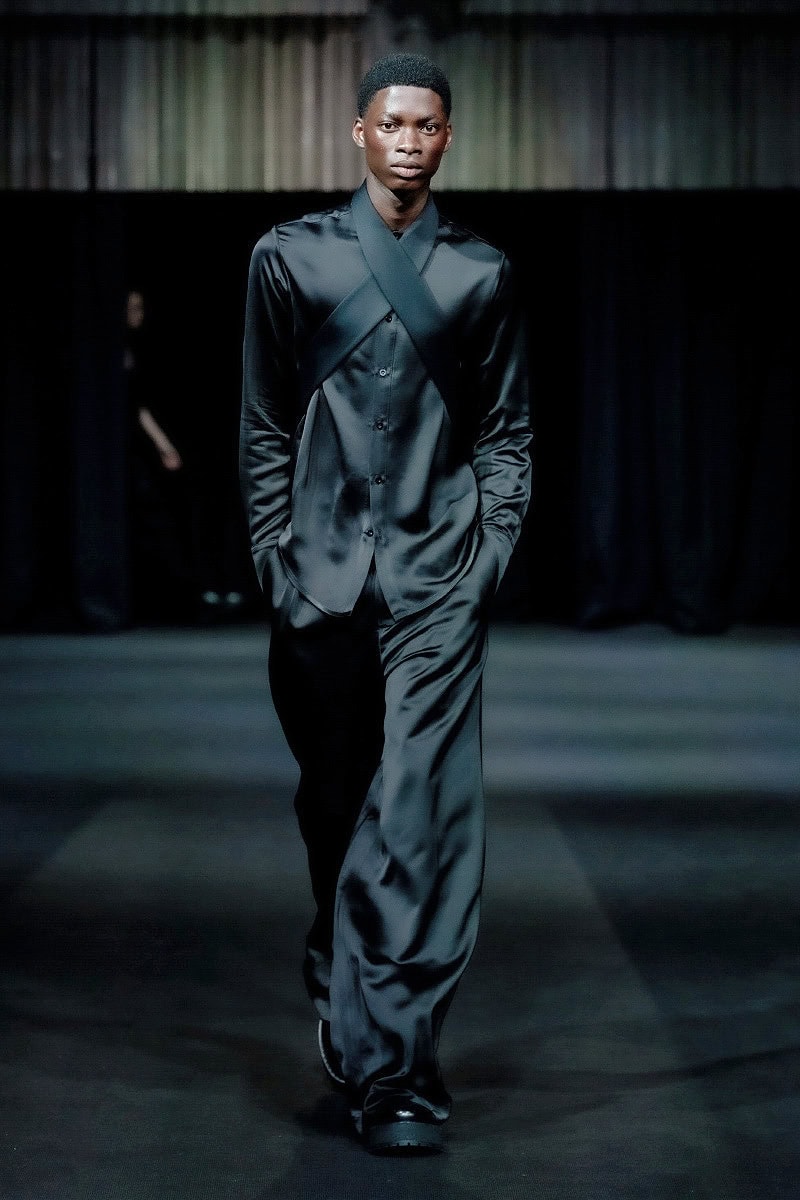
The history and influence of London fashion particularly ceremonious observance of an occasion or event runs through the bone marrow for the British fashion and textile heritage. In the case of black mourning attire standards connected to class distinction reached dictatorial levels in Victorian London, with the death of Prince Albert of Saxe-Coburg and Gotha Queen Victoria’s Prince Consort husband.
During this era, textile houses providing black fabrication were a substantial and lucrative industry in the city. The type of fabric worn in mourning also allowed observers to draw conclusions about the wearer’s social background. There were big differences in price and quality of a fabric, which were also easy to recognize in their workmanship. The rising middle class at the time used mourning customs as means to try to keep up with the gentry, mimicking their customs and trying to keep up with the quality and extent of a mourning wardrobe.
Interestingly, what made this ritual of observation expensive was the rationale that keeping mourning items, that were purchased for a specific event of death was seen as a cause for bad luck to hang on to. Family members had to purchase an entirely new set of black clothes every time a member of the family passed away. Death expected or random was an everyday phenomenon in Victorian England, where seemingly healthy people would suffer an unexplained collapse, die and the vigil would become an endless cycle on repeat. This meant that death was connected with tremendous clothing cost and many had to go into deep financial debt trying to keep up with the expensive mourning ritual.
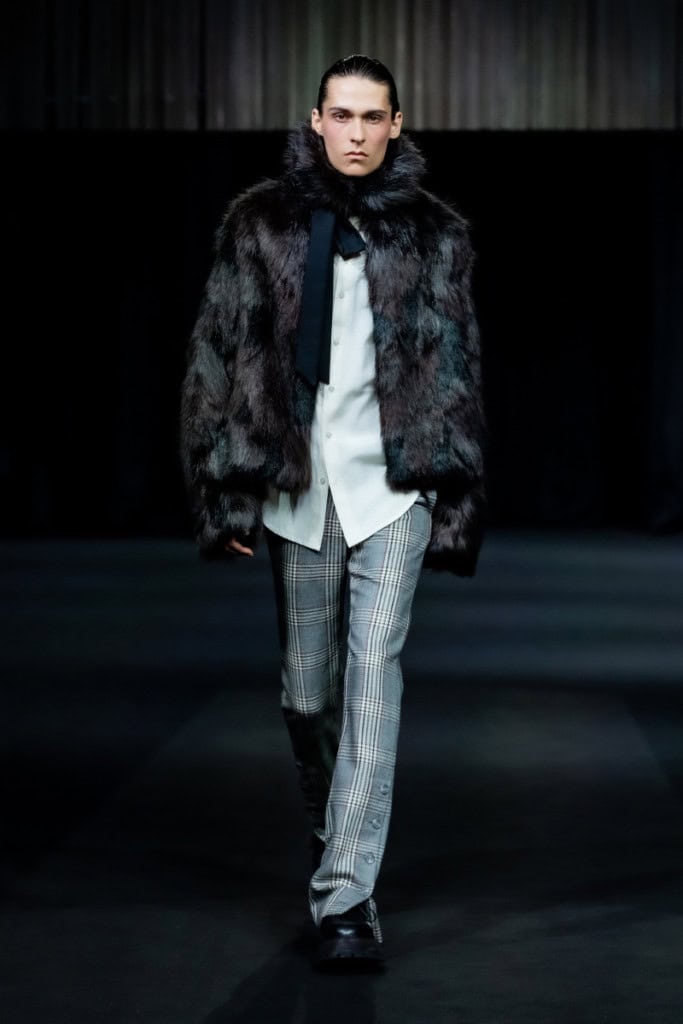
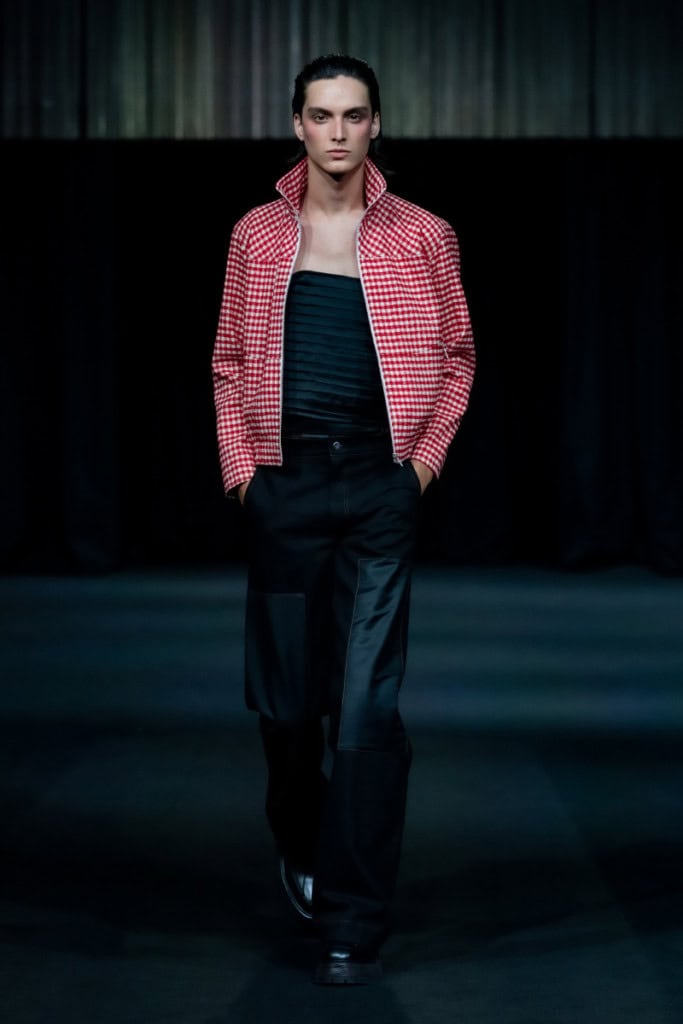
At the threshold of the new era of King Charles III, DANIEL w. FLETCHER’s collection was an elegant and beautifully tailored men’s sartorial statement in an almost luminous and romantic spectrum of fabric weights, colors and patterns. There was red check and steel gray Prince of Wales plaid however, the most outstanding and arresting looks were fashioned in black and midnight blue. Contributing to the drama of the runway was the black setting providing lending a portrait-like appeal to the clothing. The first look to open the collection was an all black mourning coat and shorts.
The designer proudly states that this was the brand’s “most sustainable collection to date”. He is interested in further exploring the parameters of working with entirely dead-stock fabrics through Nona Source. The first online resale platform which re-values dead-stock fabrics and leathers from the most exclusive French Maisons de Couture. The elevation of the brand’s product was clear and marks a new direction in luxury for the British designer. IRK attended an early collection in 2018 and has been following the brand closely and is a great fan of the growth and development from a early rack of simple clothing.
What was particularly noteworthy this season was the finish, detail and the overall polished tailored look. This was distinguishable in loose silk shirts and wide leg silk trousers which had a liquid quality when in movement. A notable historic reference in Fletcher’s work conveyed a sense of heritage. There were a recurring and unifying silhouette of sleeveless tops with raw edges and boned Basque stitching on the center front torso. This was a style popularized by Queen Victoria during the crinoline period in late eighteen thirties to late eighteen fifties. The black leather in this collection is sporty and sumptuous. Trousers and shorts were full fashioned cuts and some highlighted button details at the side seams to the ankle.
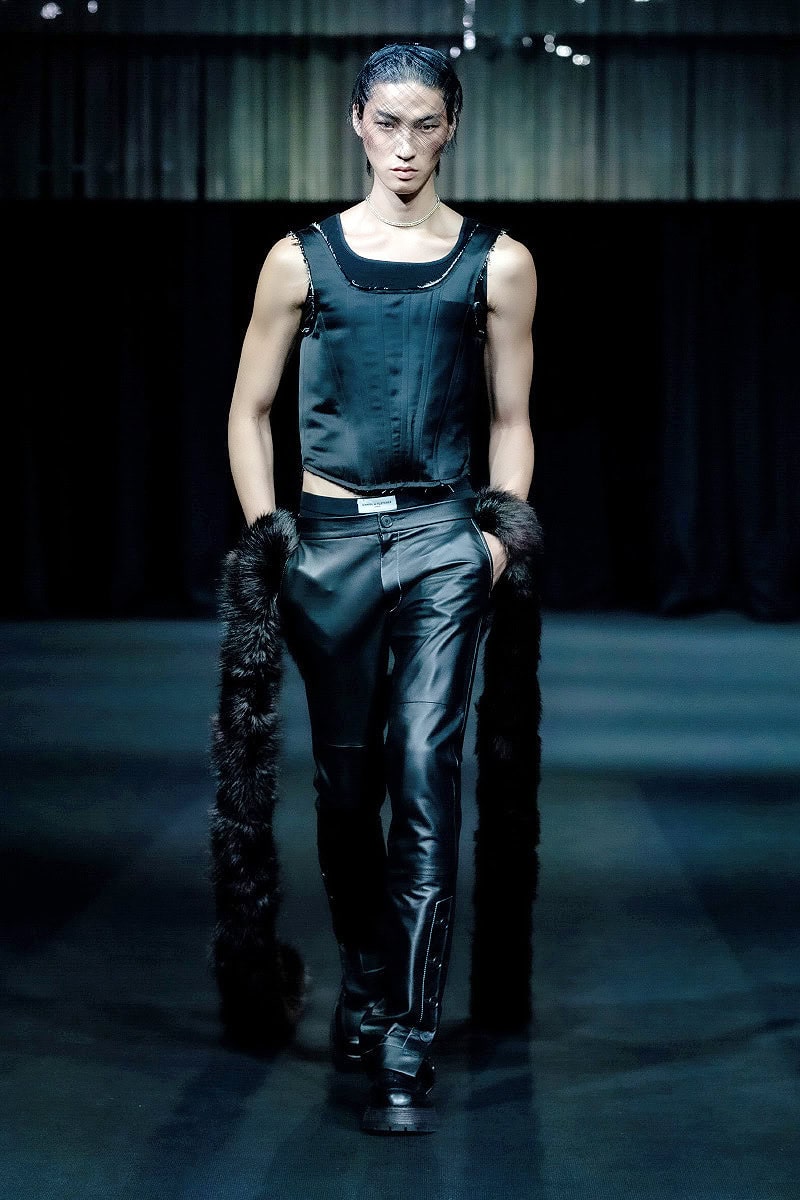
The jackets in this collection are an excellent example of a formal stance and a British double breasted and knee grazing coat. The gently fitted, wide, peak lapels accentuated structured shoulders with a profile leaning towards a natural line. They end at the hip with covered buttons, modern seaming and top stitching. The lushness in Fletcher’s dead-stock fabric selections for Spring/Summer 2023 has successfully reframed the dialogue and approach of what a sustainable collection can be.
DANIEL w. FLETCHER has a definitively high standard of tailoring and design in this collection, which is youthful, tremendously dressed up and well-suited for celebrating the forthcoming season’s new era of hope and linked to continuity.
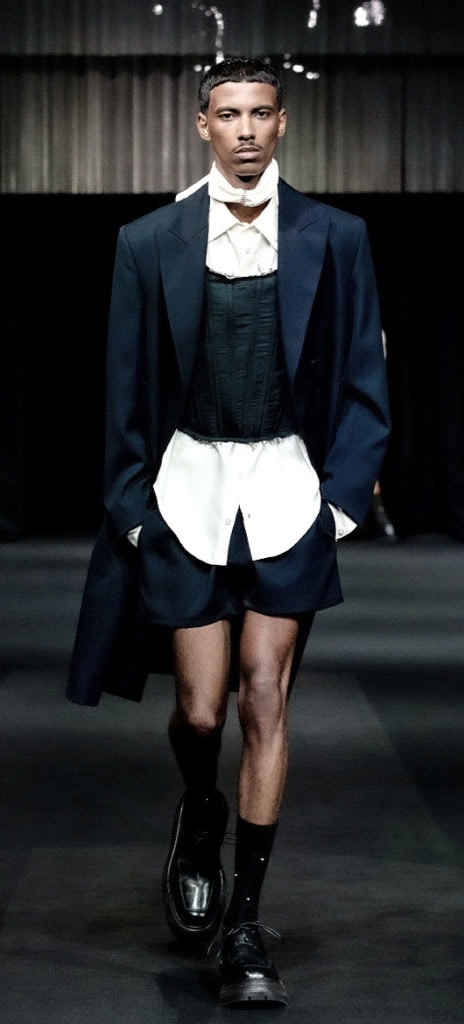
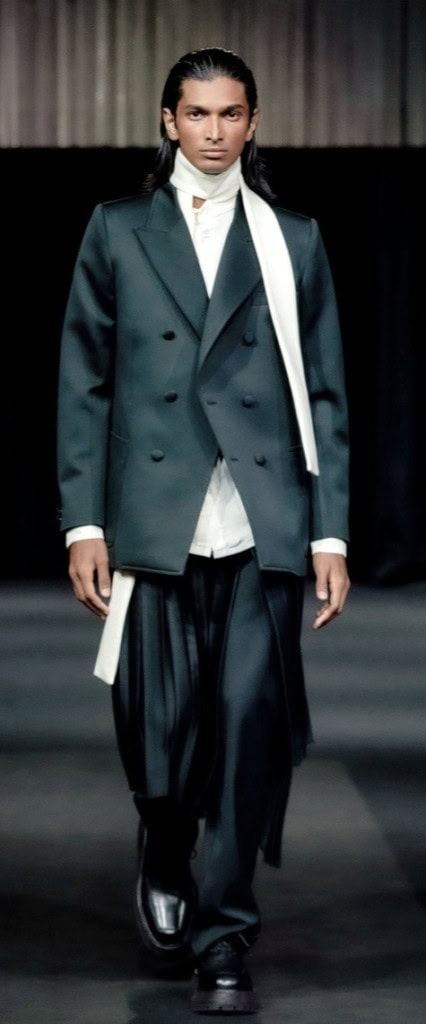
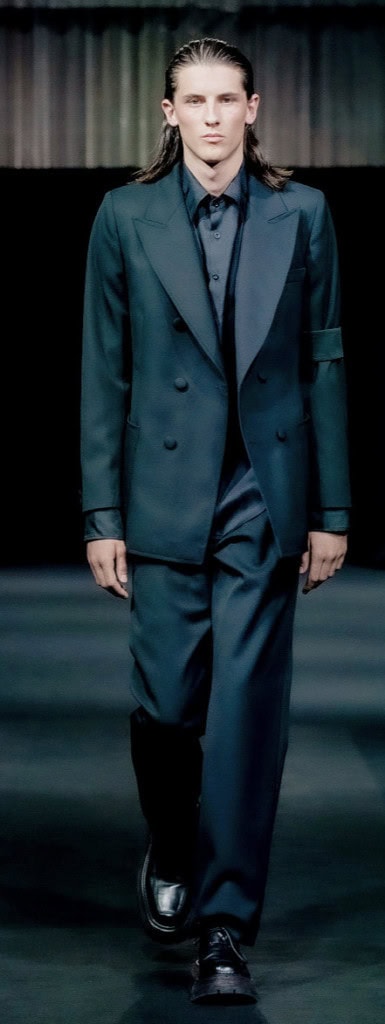
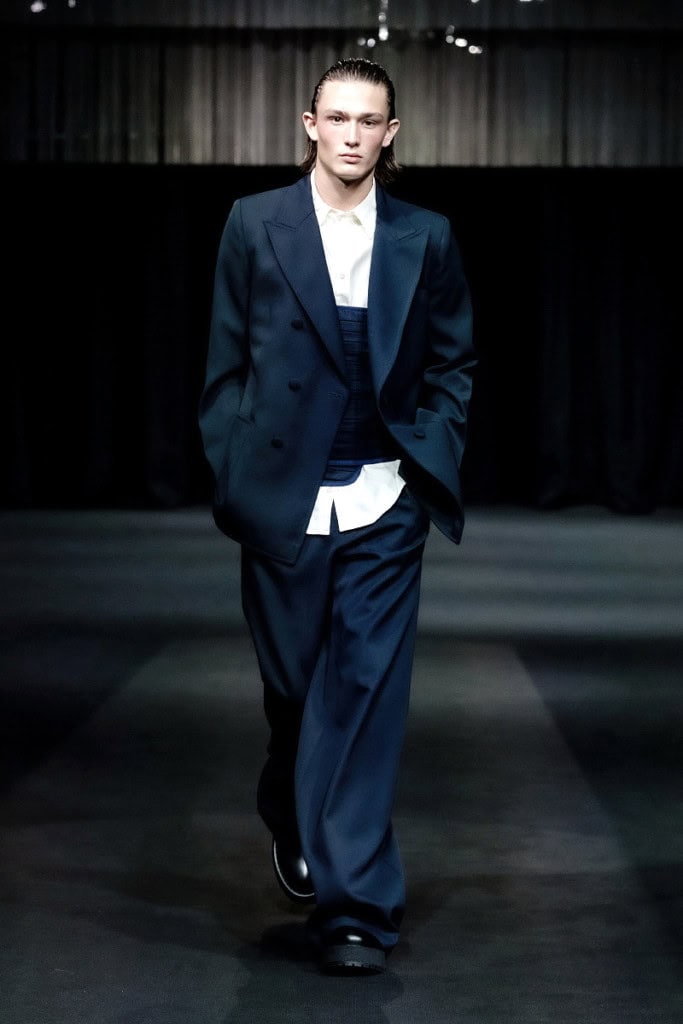
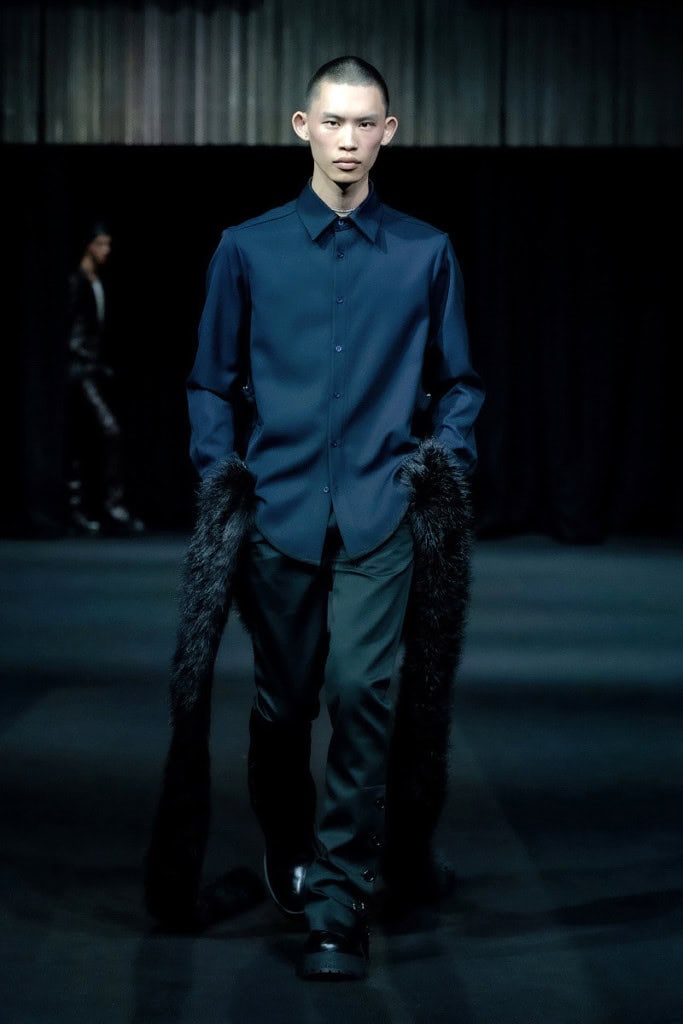
Share this post
Patrick Michael Hughes is a fashion and decorative arts historian. He writes about fashion culture past and present making connections to New York, London and Copenhagen's fashion weeks with an eye toward men's fashion. He joined IRK Magazine as a fashion men's editor during winter of 2017.
He is often cited as a historical source for numerous pieces appearing in the Wall Street Journal, The New York Times, CNN, LVMH, Conde Nast, Highsnobiety and others. His fashion career includes years as a fashion reporter/producer of branded content for the New York local news in the hyper digital sector. Patrick's love of travel and terrain enabled him to becoming an experienced cross-country equestrian intensively riding in a number of locations in South America Scandinavia,The United Kingdom and Germany. However, he is not currently riding, but rather speaking internationally to designers, product development teams, marketing teams and ascending designers in the US, Europe and China.
Following his BA in the History of Art from Manhattanville College in Purchase, New York he later completed graduate studios in exhibition design in New York. it was with the nudge and a conversation in regard to a design assignment interviewing Richard Martin curator of the Costume Institute at the Metropolitan Museum of Art he was encouraged to consider shifting his focus to the decorative arts with a concentration in fashion history and curation.
Patrick completed graduate studies 17th and 18th century French Royal interiors and decoration and 18th century French fashion culture at Musée Les Arts Decoratifs-Musée de Louvre in Paris. Upon his return to New York along with other classes and independent studies in American fashion he earned his MA in the History of Decorative Arts and Design from the Parsons/Cooper Hewitt Design Museum program in New York. His final specialist focus was in 19th century English fashion and interiors with distinction in 20th century American fashion history and design.
Currently, he is an Associate Teaching Professor at Parsons School of Design leading fashion history lecture-studios within the School of Art and Design History and Theory,
Read Next




